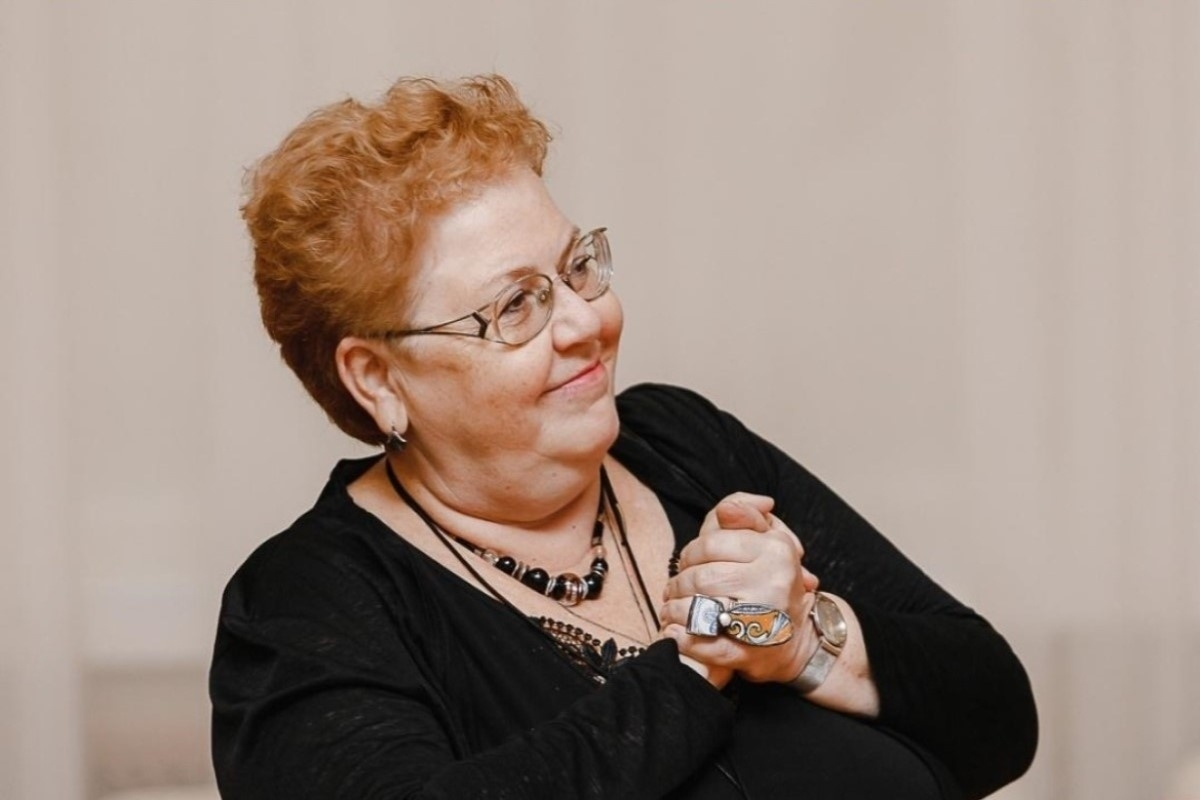Elena Kazakova: 'The defining characteristic of the modern teacher is the ability and desire to learn together with their students'

Professors and students from the Institute of Pedagogy of St Petersburg University have delivered their reports to the 20th All-Russian Scientific and Practical Conference 'Research that improves education’.
In his welcoming speech, Arkady Margolis, a member of the Council of Association of Educational Researchers, thanked Elena Kazakova, Director of the Institute of Pedagogy of St Petersburg University and Chair of the Federal Educational and Methodological Association in Higher Education 'Education and Pedagogy', for her contribution to enhancing the role of research in education and encouraging young researchers to pursue this agenda.
Institute of Pedagogy of St Petersburg University
At the conference, Professor Kazakova presented her report 'From question to action: the Russian experience of transformative research'. In her research, she tried to answer the question of how to ensure that research in education transforms reality.
Firstly, Professor Kazakova advised young researchers to develop their own strategy. Elena Kazakova referenced the research of Henry Mintzberg, Professor of Management Studies at McGill University, who outlined three ways of making decisions: ‘think first’, ‘see first’ or ‘act first’. According to the Professor, research begins with choosing a proper strategy. This is what master's and doctoral students at the Institute of Pedagogy of St Petersburg University do to begin their careers.
Regardless of what strategy a researcher chooses, they must come up with a question that is bound to lead to action, said Elena Kazakova. She identified several significant questions for contemporary researchers: Why do many teachers believe that digitalisation will lead to the replacement of the educator by a digital analogue? How many teachers can consciously evaluate their personal potential? Why do most educators prefer to deliver information in class rather than let students search for it on their own? Today, researchers are trying to find answers to these and other questions.
Elena Kazakova, Director of the Institute of Pedagogy at St Petersburg University, also emphasised that today's educators in Russia prioritise national research that is specific to the development of the Russian education system and identifies effective techniques and practices in structuring learning activities. As an example, she mentioned the research findings that the current homework format has become obsolete and an inhibiting factor for the development of the education system.
Understanding education as an activity generates a whole strand of research that can really influence the development of education.
Elena Kazakova, Director of the Institute of Pedagogy at St Petersburg University
The topics of such research include: exploring the role of motivation in pupils' success; their involvement in goal-setting in class; the selection of content, tools and teaching sequences; and the analysis of results of lessons.
Among the problems that Elena Kazakova identified in teacher's methods of work with students are: poor development of research culture among students; the prevalence of theory over practice and research activities in lessons; and the lack of feedback from students. 'Formative assessment is one of the quality technologies for structuring the teaching and learning process. Moreover, this assessment forces us, the designers of educational content, to focus on tools to ensure feedback and obtain it for every task a student undertakes,' said Elena Kazakova, Director of the Institute of Pedagogy.
Today, we need new, young, strong and motivated educators, because people who see education as happiness, potential and opportunity are very important.
Elena Kazakova, Director of the Institute of Pedagogy at St Petersburg University
'The defining characteristic of an effective teacher today is the ability and desire to learn together with their students. In this way, every educational activity for a modern teacher becomes an exploratory act. In this sense, we do not live for children, but together with children,' said Elena Kazakova, Director of the Institute of Pedagogy at St Petersburg University.
Students from St Petersburg University also spoke at the conference. Fan Chushu, a postgraduate student of St Petersburg University, presented a report 'Comparative study of value texts in the school space of Russia and China'. She analysed the messages displayed on the walls of schools in the two countries and the values they convey. For example, the researcher found out that the main ideals taught to schoolchildren in China are equality and fairness. In Russian schools, posters most often teach children the value of human life, family, civil society and humanity as a whole.
The University students also discussed: the use of computational linguistics methods in the analysis of terminology in modern textbooks; the impact of information and communications technology on the efficiency of education in Russia; current issues in the use of longreads in the teaching and learning process; and a comparative analysis of didactic principles in modelling modern virtual learning environments.

